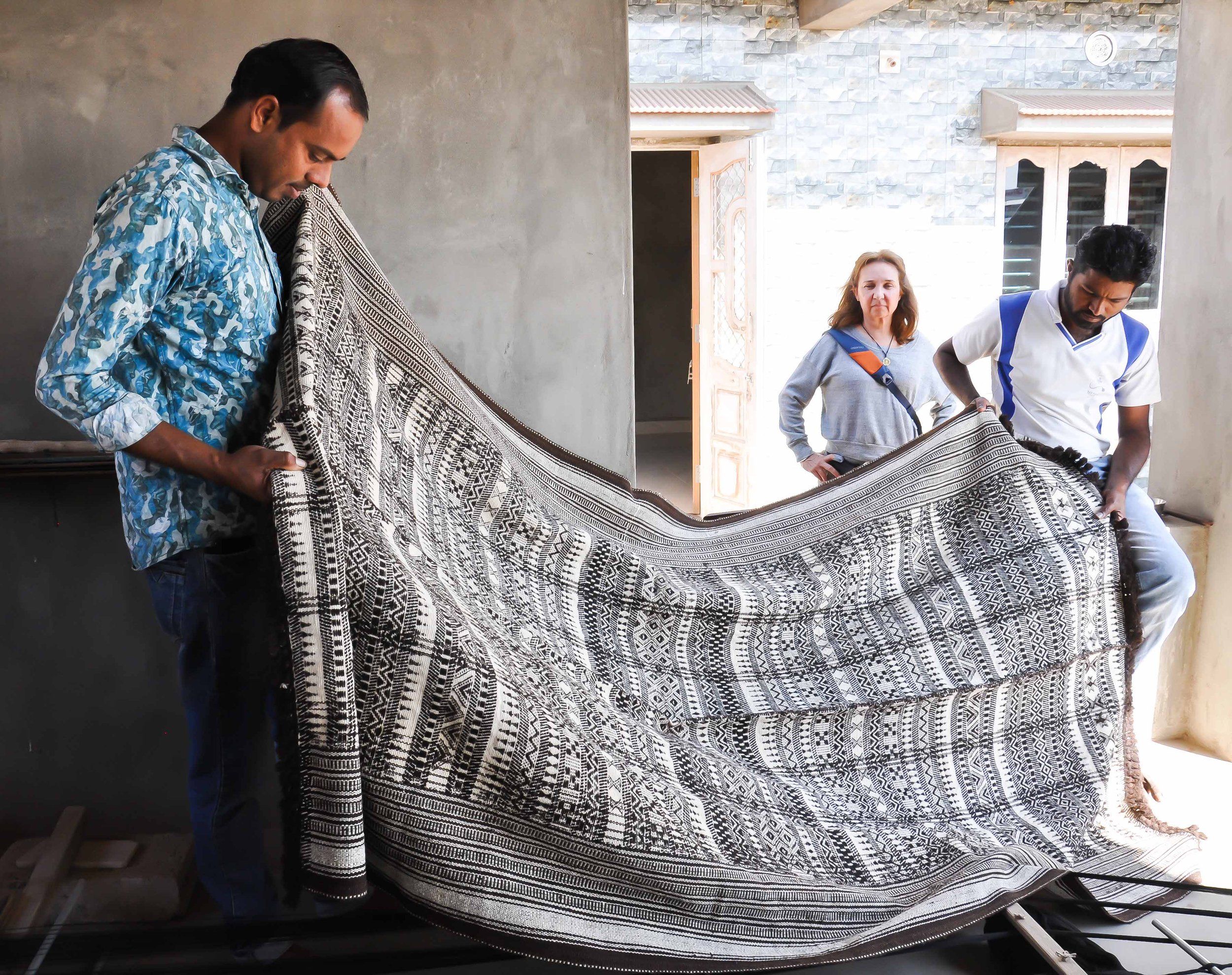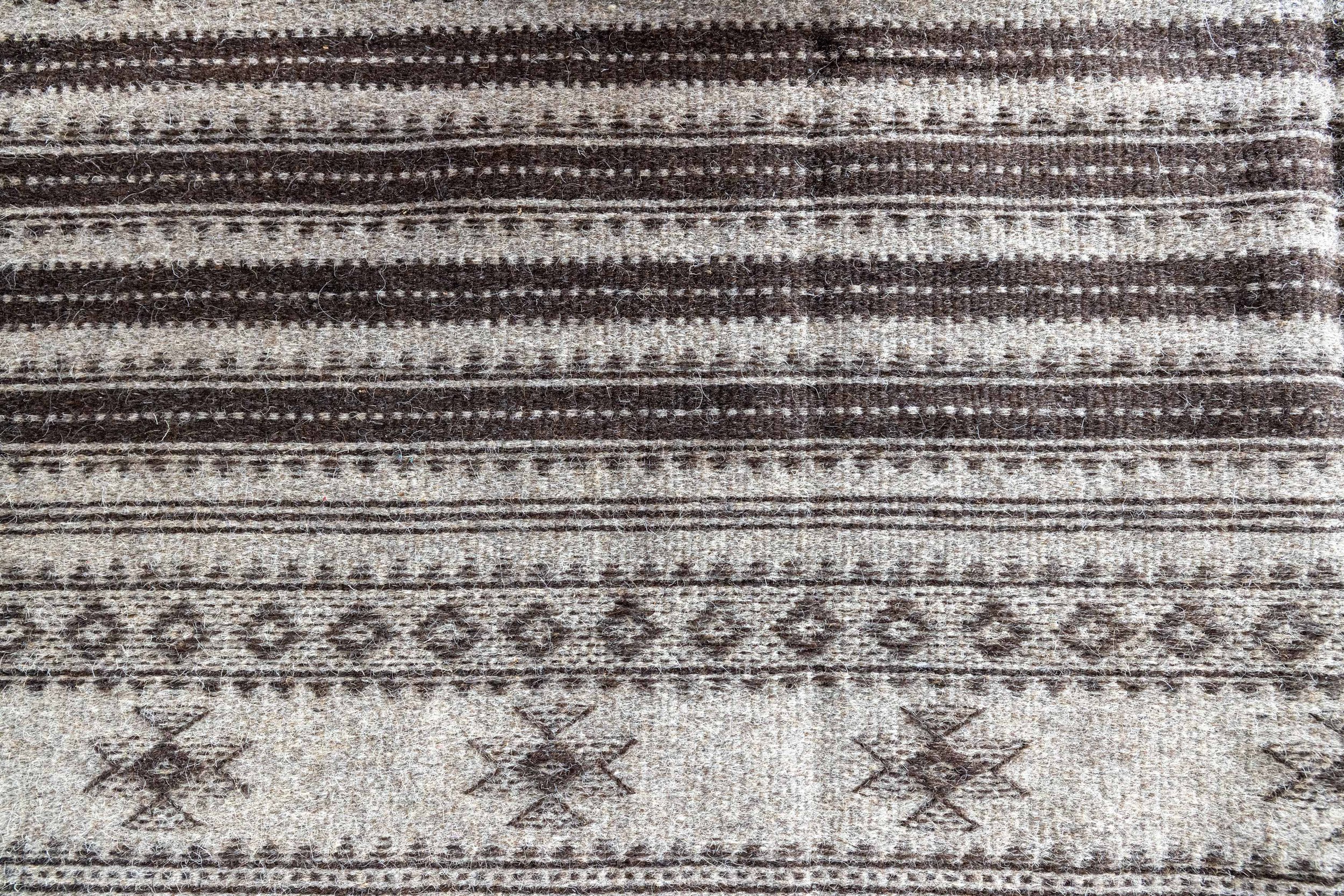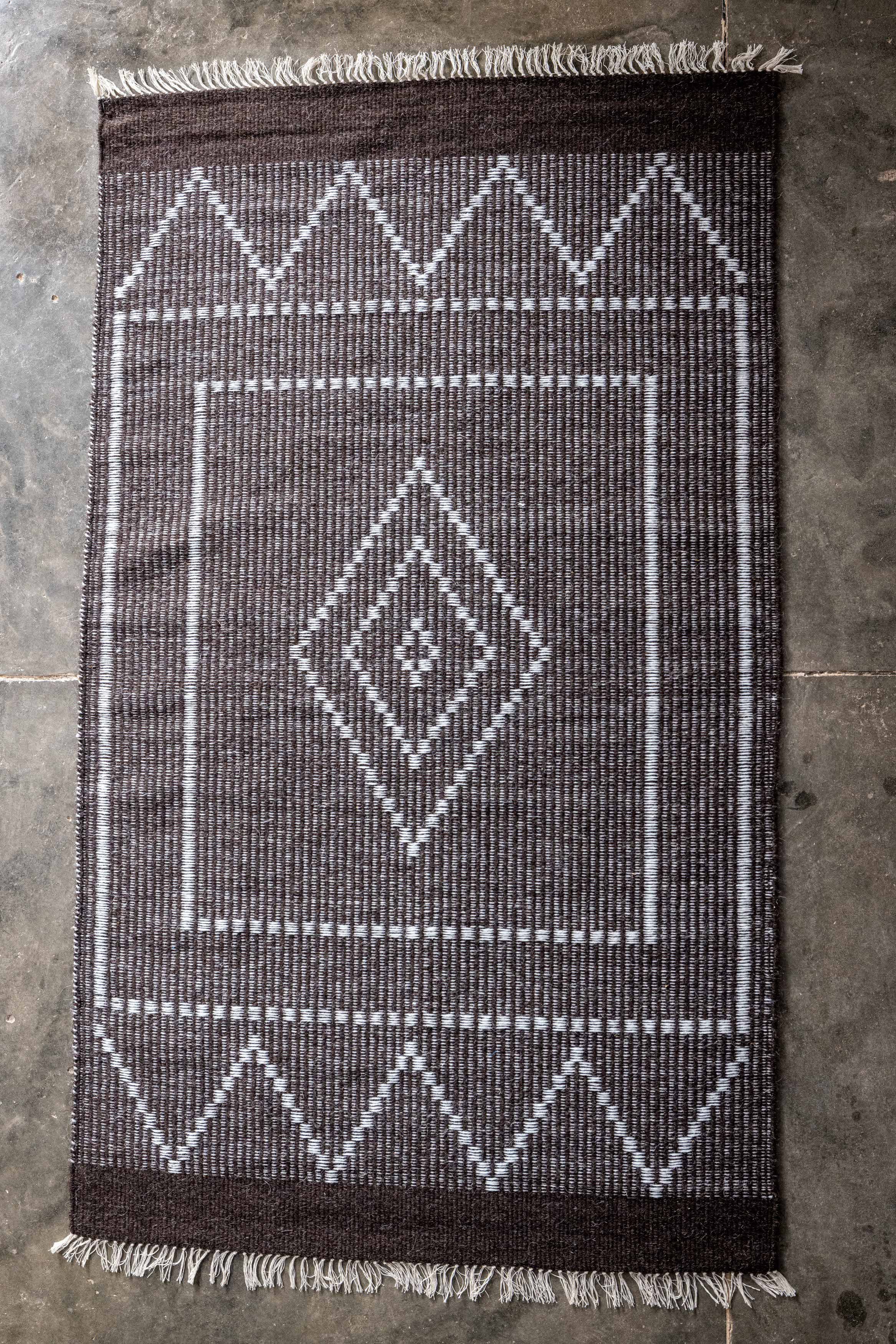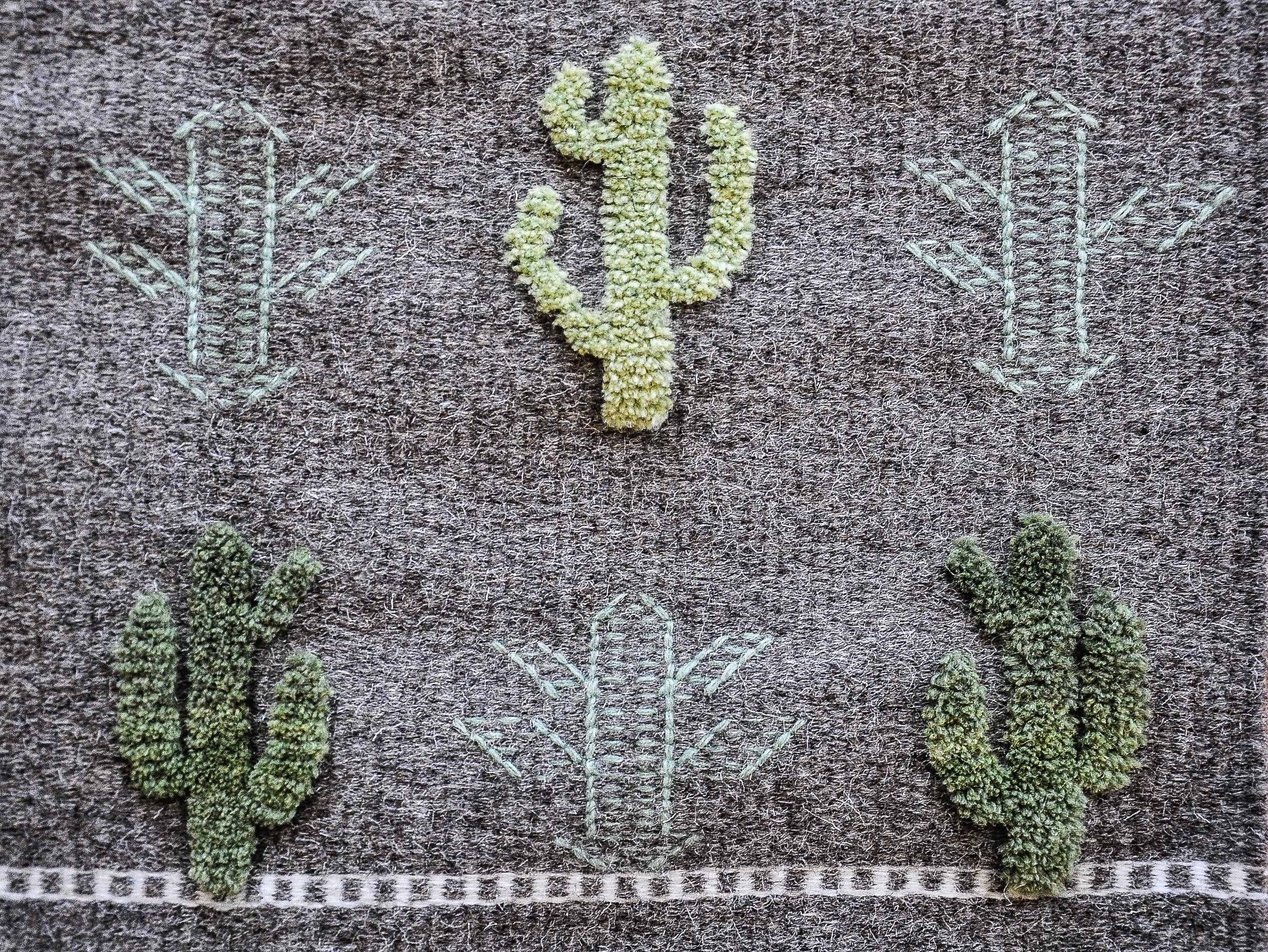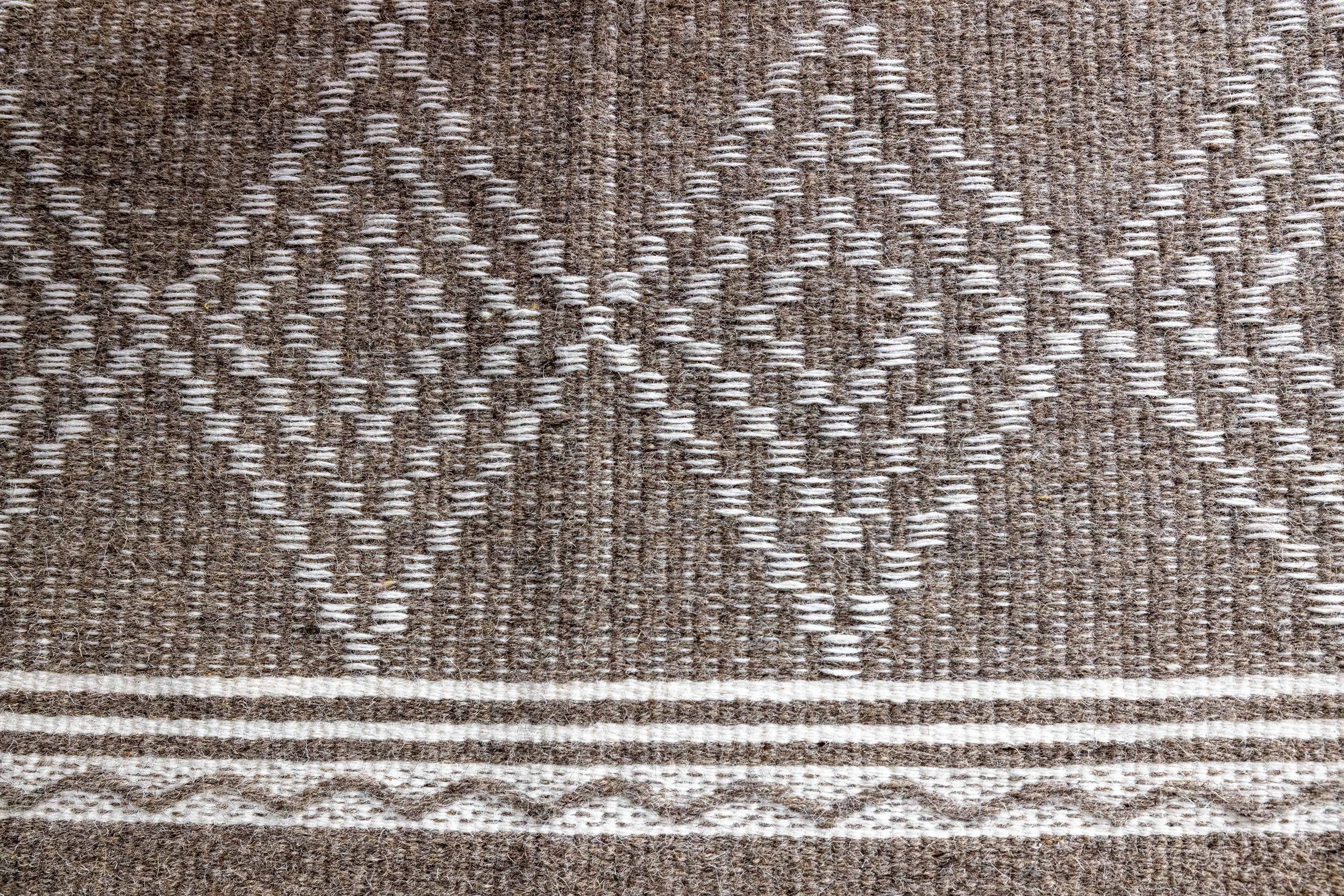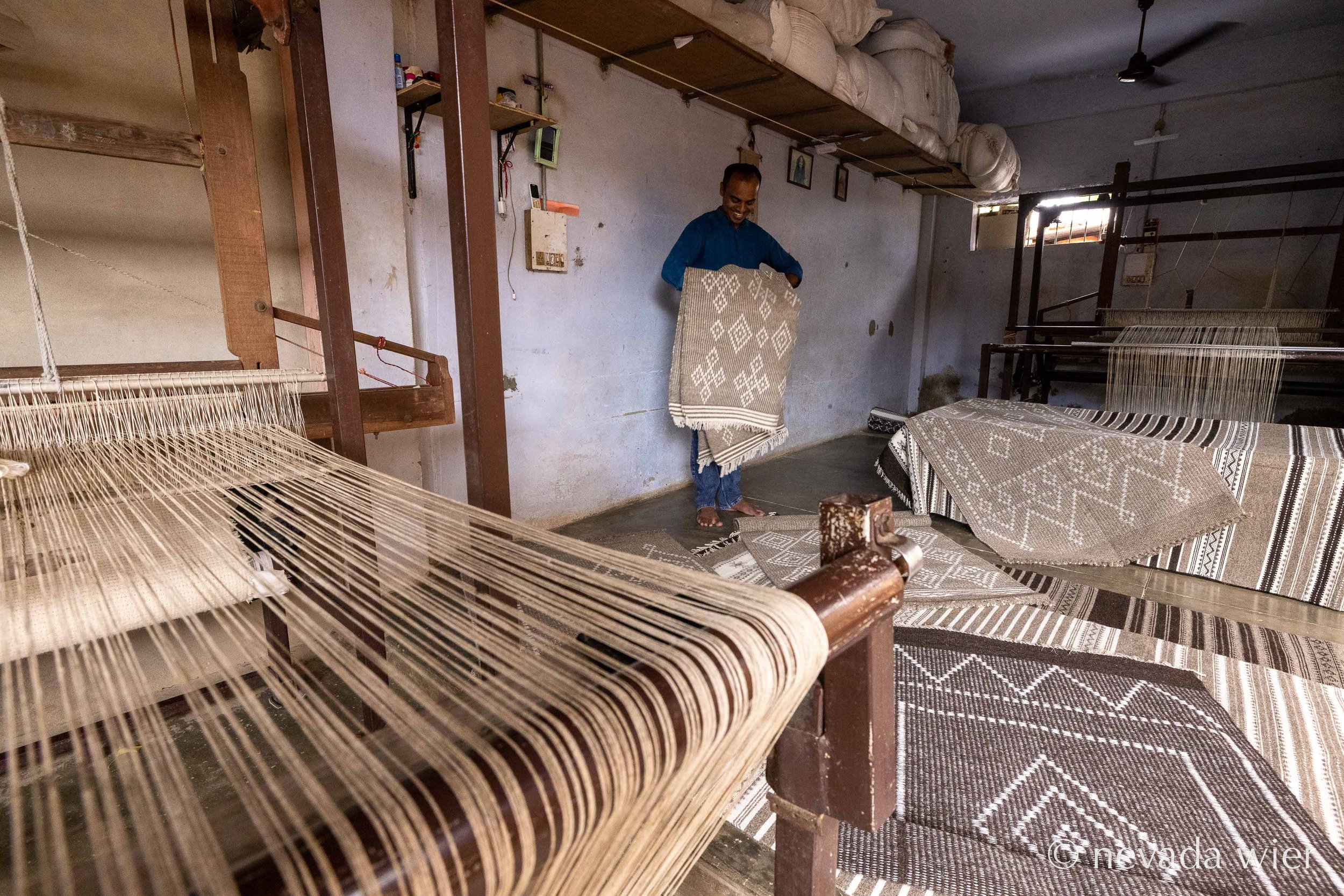Prakash Naranbhai Siju
Creativity Flourishes in the Village of Bhujodi
Prakash Naranbhai Siju’s family has lived in the Bhujodi village in the desert region of Kutch for seven generations. Prakash’s grandfather originally wove Rabari dhabla blankets and was the first to learn carpet weaving in the 60s. This practice has been passed down from generation to generation and today weaving is a family affair for the Siju’s. Prakash’s mother and wife prepare the warp, wind the bobbins, and create the finishing tassels. Prakash, his father, and his brother do the majority of weaving on a two-pedal frame loom. Their exquisite muted tonal carpets are made up of pure cotton or wool and are adorned with traditional motifs such as the chomak (4-sided ceremonial lamp), dungalo (ceremonial drum), panchko (5 paise coin), popti (butterfly) kungari (crenelated fort), lath (stick), and jhad (tree).
Historically, the Kutch wove for nomadic Rabaris and settled Ahirs, creating deep connections and cultural knowledge. In the 1960s, outside influences encouraged Kutch weavers to create products that would appeal to a domestic market. Through the introduction of industrially produced fabrics and power looms, many weavers gave up traditional weaving techniques. However, Prakash and his brother firmly believe that traditional Kutch weaving can be kept alive through diversification. Recently, Prakash created a collection of carpets inspired by the traditional ludi a handloom woolen bandhani veil worn by Rabari women.
With a deep desire to empower artisans, Prakash has taught carpet weaving, which differs from shawl and sari weaving, to many neighboring artisans. He also implements a labor system wherein when he collaborates with other weavers, he doesn’t dictate the designs for their labor, but rather gives them the raw materials for them to create their own designs–encouraging a flourishing artistic community.



